Société
Société
A True Salon
Par Teresa C. Jones le 27 décembre 2010
In 1992, when I arrived in Montreal to replace the number two at the U.S. Consulate General in Montreal, I had a few days of overlap with John Riley, my predecessor. He told me all about this fascinating salon that he attended and that I should attend. He even took me to a Wednesday night meeting. Coming from Washington and the interagency maze of experts, it was refreshing to find a group who actually thought as well as they talked. Diana and David had the magical ability to draw out the best of the discussion and the discussants. The topic didn't matter.
Wednesday Night: The Cardinal would feel at home
Par Margaret Duthie le 27 décembre 2010
Wednesday-Night – for me is a coming-together in what I imagine to have been the style of the French Cardinal Richelieu who founded the French Academy (Académie française) in 1635., but was also famed for his literary 'salons.'
1500 Wednesdays
Par Prof. Gerald Ratzer le 27 décembre 2010
David and Diana Nicholson have to be congratulated for what is clearly a record setting contribution to the social and intellectual fabric of Montreal. From what started as an after-class get together with her McGill professor Carl Begie over a drink, this has expanded into a well researched and documented salon, few in the world can revival.
It changes lives
Par Katherine Waters le 27 décembre 2010
My husband David and I weren't sure what to expect at our first Wednesday Night. We'd heard that several economists, stockbrokers, investment counsellors, bankers attended. Would a journalist and an English Lit professor of socialist inclinations and little disposable income fit in?
A magnificent and unanticipated pleasure!
Par Prof. Guy Stanley le 27 décembre 2010
The Italian historian Benedatta Craveri remarks in l’Âge de la conversation (Gallimard 2002) that the conversation of the Salon over the course of a century or more, beginning in the 17th century after the the French wars of religion, developed a civilizing ideal of social conduct based on courtesy and mutual pleasure. Over the course of its development, as other historians noted (e.g. Anne Martin Fugier in her account of Les salons de la Troisième Républic (Perrin/Tempus 2009)) the ideal of sociable conversation deepened as participation broadened to include writers, artists, and politicians.
A Special Thanks to David and Diana Nicholson for Wednesday Nights
Par The Hon. John Ciaccia le 27 décembre 2010
We are grateful for the opportunities you have given us to meet, to talk , to sometimes dispute but always to enjoy your company and that of the many and varied people who have joined you on Wednesday Night.
You have opened your home and your hearts to us all. We have been fortunate to have had this oasis in the midst of apathy inattention and confusion. A place where the events of the time will have been reviewed, discussed, discarded, embraced but never overlooked. They have enriched us all- and left us yearning for more.
To be or not to be, is still the big question
Par P.A. Sévigny le 27 décembre 2010
While death and taxes continue to be the two immutable factors of modern life, questions raised by legal euthanasia seemed to be less concerned with the inevitable end of life as opposed to the where, when and especially how the lights get turned off.
“It’s not so much about if we’re going to die,” said Dr. Stephen Liben. “It’s all about how we’re going to die.”
Supreme Court compromises home privacy
Par Beryl Wajsman le 1 décembre 2010
We have all heard the expression that a “person’s home is their castle.” It is more than a saying. It has for hundreds of years been incorporated into the body of our laws. Clearly one can understand that there are certain exceptions. If we hear some horrible scream or smell or smoke coming from our neighbour’s home or apartment we would be irresponsible not to call the appropriate authorities and they would be perfectly right to come and investigate. But how do you feel about information collected about you through the endless panoply of wires and meters governing our abodes being handed over to public security authority? A great danger we think. Yet that is what the Supreme Court has opened the door to.
The secrets of the Sistine Chapel
Par Father John Walsh le 4 novembre 2010
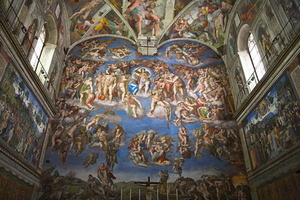 The canonization of Brother André brought many Montrealers to Rome. Inevitably they will complain about the long line-ups to visit the Sistine Chapel but will they have uncovered the secrets of the Sistine Chapel? Viewing the work of Michelangelo is breathless but does the Chapel still hold its secrets from the average visitor. The incredible frescoes required a rather complex method to prepare the plaster before the first stroke of the paintbrush would bring color to life. Imagine Michelangelo laying on his back for four and a half years painting the entire ceiling and walls of ceiling and walls of the Chapel. The Chapel is a replica, of identical size, of the Jerusalem Temple and symbolized the successionism of Catholicism over Judaism. The masterpiece has, from the time of its painting, been regarded as an affirmation of the Roman Catholic Church’s central place in the economy of salvation.
The canonization of Brother André brought many Montrealers to Rome. Inevitably they will complain about the long line-ups to visit the Sistine Chapel but will they have uncovered the secrets of the Sistine Chapel? Viewing the work of Michelangelo is breathless but does the Chapel still hold its secrets from the average visitor. The incredible frescoes required a rather complex method to prepare the plaster before the first stroke of the paintbrush would bring color to life. Imagine Michelangelo laying on his back for four and a half years painting the entire ceiling and walls of ceiling and walls of the Chapel. The Chapel is a replica, of identical size, of the Jerusalem Temple and symbolized the successionism of Catholicism over Judaism. The masterpiece has, from the time of its painting, been regarded as an affirmation of the Roman Catholic Church’s central place in the economy of salvation.
“The Jew is not my enemy!” Fatah challenges extremists within his own faith
Par Dan Delmar le 4 novembre 2010
 Religious extremism in Islam, Tarek Fatah says, is a “disease that is affecting us to the point that we’re becoming insane with our hatred. I wanted to investigate what is the root cause of the hatred of the Jews.”
Religious extremism in Islam, Tarek Fatah says, is a “disease that is affecting us to the point that we’re becoming insane with our hatred. I wanted to investigate what is the root cause of the hatred of the Jews.”
Born in Karachi, Pakistan, Fatah is the founder of the Muslim Canadian Congress and the author of the just-released “The Jew is Not My Enemy: Unveiling the Myths that Fuel Muslim Anti-Semitism.” His book tour included two stops in Montreal last week, including one at Côte St. Luc’s Beth Israel Beth Aaron Synagogue.
JFK bust moved
Par Alan Hustak le 4 novembre 2010
The bust of President John Fitzgerald Kennedy that has stood outside the Place des Arts metro station since 1986 is no longer there. Because he public square in which it stood is being rebuilt as part of the new Symphony Hall project, the statue has been taken away and JFK Square has been renamed Promenade des Artistes.
Les deux solitudes : Up close and personal
Par Fanny La Croix le 9 septembre 2010
Why do Francophones speak so much English amongst themselves? It’s a question you find yourself asking often when you’re in constant language flux, seamlessly weaving between the two solitudes.
Même parmi les Francophones pures laines, certains dont l'anglais est au mieux passable, ils se retrouvent à utiliser ce langage si confortable et si à la mode, celui de Shakespeare. De temps en temps, il y a un éveil, alimenté par la fierté nationaliste; les excuses commencent ainsi que la détermination bien intentionnée de vouloir parler plus le français, mais c’est de courte durée.
L’Islam est-il né dans un désert?
Par Louise V. Labrecque le 9 septembre 2010
Dans cinq ou huit langues différentes, en fouillant bien, des savants ont trouvés des textes arabiques, qui n’ont aucune parenté avec l’arabe qu’on connait. Le défi, pour quiconque s’intéresse à l’avant-Islam, c’est de trouver des sources. Il faut donc, bien souvent, se tourner vers la tradition orale et de la poésie archaïque, recueillis par les premiers savants arabo-musulmans (des milliers de textes antiques), souvent gravés sur pierre ou métal, espèces de graffitis incisés par des passants sur les roches, le long des chemins et autres documents d’archives écrits sur des bouts de bois, en alphabet cursif. En effet, cette diversité précède la conversion à l’Islam et porte le nom de Jâhiliyya ou « Age de l’ignorance »; en ce temps-là, la Mecque était une petite bourgade aux ressources limitées où la faim et la survie était lot quotidien de la population. Parce qu’elle n’a jamais été réellement conquise, l’Arabie n’est mentionnée qu’incidemment dans les sources orientales (annales syriennes et la Bible).
300,000 abused?
Par Barbara Kay le 22 juillet 2010
 “A bad statistic,” says sociologist Joel Best, “is harder to kill than a vampire.” Bad statistics come from bad intellectual faith. And in no field does bad intellectual faith run more rampant than that of domestic violence.
“A bad statistic,” says sociologist Joel Best, “is harder to kill than a vampire.” Bad statistics come from bad intellectual faith. And in no field does bad intellectual faith run more rampant than that of domestic violence.
In an up-to-date example of the phenomenon, we find the “World Soccer Abuse Nightmare” out of England, in which the British Home Office carelessly endorsed a bogus study put forward by England’s Association of Chief Police Officers, purporting to find that a full 30 per cent increase in domestic violence (DV) during the World Cup. A subsequent investigation by reliable scholars found the so-called study to be riddled with errors and corrupt methodology.
What Hampstead can learn from Syria and Tunisia
Par Dan Delmar le 22 juillet 2010
In their fight to prevent the Quebec government from passing Bill 94, niqab and burqa-wearing Muslim women have found support in the most unusual of places: The most heavily Jewish town, statistically, in the entire province.
The face veil – the dehumanization of women – is where most reasonable people would draw the line. And evidently leaders in jurisdictions like France, Belgium, Syria, Tunisia, Turkey and Egypt agree, having adopted various sorts of niqab restrictions. Why does Hampstead purport to know what is better for Muslim women than a growing number of Muslim nations?
Armageddon or no Armageddon, Secularists need to remain vigilant
Par Anthony Philbin le 22 juillet 2010
The recent publishing of Marci McDonald’s The Armageddon Factor: The Rise of Christian Nationalism in Canada, was timed to coincide with Canada’s annual National Prayer Breakfast (NPB). Though the first occurrence of the prayer breakfast took place when The Beatles arrived on North American soil, back in 1964, I have to say I’d probably still be in the dark about it if not for the clever marketing ploy by McDonald’s publisher.
Message to environmentalists: ‘Humankind needs energy!’
Par Mischa Popoff le 22 juillet 2010
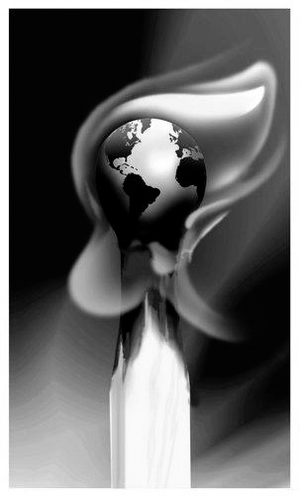 Humankind needs energy; always has, always will.
Humankind needs energy; always has, always will.
The emails from East Anglia University revealed that global-warming data were all fudged – plain and simple. This led to the collapse of a global-warming industry that had sprung up after the signing of the Kyoto Protocol. But die-hard environmentalists were never bothered by not having a leg to stand on. Not only do they still want us to quit driving our cars, they want us to quit taking flights.
Fifty years after – The Church today
Par P.A. Sévigny le 10 juin 2010
As one of the city’s more successful antique dealers, the late Conrad Martin used to tell stories about how he started out as a ‘picker’ when he used to go up into the Gaspé and the Lac St. Jean districts to buy up whatever he could find once the province’s Catholic Church began to close up its empty churches and assorted convent properties.
“I used to make sure I had big rolls of cash,” said Martin. “I would go up to see the Abbess of the convent, put the money on her desk and make the deal right then and there before calling in the boys to load up the truck.”
La pensée de Tariq Ramadan selon Gregory Baum
Par Pierre Brassard le 10 juin 2010
Le théologien Gregory Baum, professeur émérite de la Faculté des sciences religieuses de l’Université McGill vient de publier: Islam et modernité : la pensée de Tariq Ramadan (Édition Bellarmin, 2010). À mon avis, son livre comporte de profondes lacunes.
Religious daycare: Pick your cultural battles
Par Barbara Kay le 23 avril 2010
Quebec is the most militantly secular of all Canada’s provinces. Its intellectuals and cultural elites are resolutely committed to the ideal of a lay society. References to the Church in the media positively bristle with thinly-sheathed scorn. Yet the Quebec government is inconsistent when it comes to religious instruction in publicly funded institutions.
A Neighbourhood’s Rebirth: Shaughnessy Village
Par Sharman Yarnell le 23 avril 2010
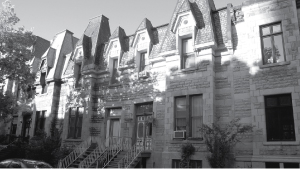 It’s springtime in Shaughnessy Village and the residents are out-and-about after a long hibernation. It has a wealth of cultural diversity. What an amazing mixture, a true melting pot, of not only cultures, but people from different social status. On one block alone there are Indians, Germans, Ukrainians, Italians, Haitians and Irish. Anyone thinking of purchasing property in the area would be joining actors, lawyers, architects, authors, a dentist, an opera singer and a playwright.
It’s springtime in Shaughnessy Village and the residents are out-and-about after a long hibernation. It has a wealth of cultural diversity. What an amazing mixture, a true melting pot, of not only cultures, but people from different social status. On one block alone there are Indians, Germans, Ukrainians, Italians, Haitians and Irish. Anyone thinking of purchasing property in the area would be joining actors, lawyers, architects, authors, a dentist, an opera singer and a playwright.
Namur Jean-Talon: An eco-utopic condoville?
Par Dan Delmar le 23 avril 2010
 Car dealerships, cheap office space, a cemetery, barren lots and a handful of sub-par apartment buildings; such is the makeup of the neighbourhood becoming known as NJT – Namur Jean-Talon. Within ten years, it is expected to undergo a complete transformation and the worth of the area is expected to increase tenfold. NJT is a project twice as valuable to the city as Griffintown, but without the high profile and ensuing scepticism.
Car dealerships, cheap office space, a cemetery, barren lots and a handful of sub-par apartment buildings; such is the makeup of the neighbourhood becoming known as NJT – Namur Jean-Talon. Within ten years, it is expected to undergo a complete transformation and the worth of the area is expected to increase tenfold. NJT is a project twice as valuable to the city as Griffintown, but without the high profile and ensuing scepticism.
Griffintown: The limits of loss
Par P.A. Sévigny le 23 avril 2010
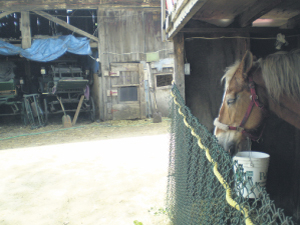 Decades after there will be nothing left of Montreal’s Griffintown except for the name and Mary Gallagher’s headless ghost, more than a few urban planners will continue to wonder why so little was done with such a magnificent opportunity for truly sustained and modern urban development. “This is such an incredible opportunity to build a real 21st century city,” said Montreal urban activist Judith Bauer. “Why can’t these people think of empty urban space as something more than just another opportunity to build another pile of condos?”
Decades after there will be nothing left of Montreal’s Griffintown except for the name and Mary Gallagher’s headless ghost, more than a few urban planners will continue to wonder why so little was done with such a magnificent opportunity for truly sustained and modern urban development. “This is such an incredible opportunity to build a real 21st century city,” said Montreal urban activist Judith Bauer. “Why can’t these people think of empty urban space as something more than just another opportunity to build another pile of condos?”
The private lives of public people
Par Dan Delmar le 25 mars 2010
Over one decade after American conservatives tried to demonize oral sex in the oval office, public figures are still being unfairly chastised for behaviour that should have remained private; behaviour that likely has no negative impact on their roles as politicians or professional athletes; behaviour that, while not admirable, is completely natural and may understandably result from attaining a certain level of success.
PHILIPPE CASGRAIN A renaissance man passes
Par Alan Hustak le 25 mars 2010
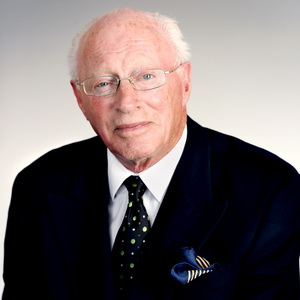 If Philippe Casgrain hadn’t gone into law he might have been actor.
If Philippe Casgrain hadn’t gone into law he might have been actor.
Mr. Casgrain, who died Feb . 28 at 82 was one of those cultivated, old-world figures with a sense of panache. A specialist in commercial and environmental law, he often relied on his natural charm to argue a case. “I’m always anxious for the judge to take his seat in the courtroom so I can put on a show for him,” he once told a reporter, “You have to be as well prepared as any actor if you are going to be convincing and win any sympathy for your client.”
L’infrastructure numérique du XXIe siècle
Par Marc Garneau le 11 février 2010
Pendant et après la Seconde Guerre mondiale, C.D. Howe, un homme politique canadien, a présenté un grand projet de société pour transformer le Canada en une puissance industrielle de premier plan dans la seconde moitié du XXe siècle. Anticipant l'avenir, il a commencé à créer les industries nucléaire et aérospatiale du Canada, ainsi que l'infrastructure essentielle nécessaire pour bâtir une économie prospère et dynamique.
The CSST and workers rights
Par Jack Locke le 11 février 2010
One day, Bob Morgan was happily working at his baking job when he was
assaulted by a co-worker. The story is eerily reminiscent of the
butcher who had a mishap while grinding beef to make sausage.\
The butcher was a skilled fellow with many years experience under his
belt. As he was grinding the meat he realized he had to add more spices
to the mixture. As he reached high atop the shelf, the pepper fell.
When he tried to catch the falling container, he accidentally backed up
into the meat grinder...
Liberalism and the Jews
Par David Solway le 11 février 2010
One of the strangest and, at first blush, inexplicable aspects of the current social and political scene, remarked upon by many writers, is the swelling tide of antisemitic sentiment and the orchestrated, international campaign against the very existence of the Jewish state. We see it in the divestment campaigns of the churches, NGOs, and trade unions, in the proliferation of “Israel Apartheid Weeks” on university campuses, in the modern blood libel perpetrated by the Swedish press, and in the ramifying anti-Israel resolutions passed by the United Nations, exemplified most recently by the mendacious Goldstone report. Why should this be so?
Les Sulpiciens et la liberté de presse
Par Pierre Arbour le 7 janvier 2010
A l’occasion du 350e anniversaire de l’arrivée des Sulpiciens en Nouvelle-France, de nombreuses fêtes, cérémonies et célébrations eurent lieu pour commémorer cet évènement ainsi que les réalisations des Messieurs de St Sulpice; ces réalisations ne furent pas des moindres surtout dans le domaine de l’éducation. Un livre vient d’être publié “Les Sulpiciens de Montréal; une histoire de pouvoir et de discrétion 1657-2007, Fides”; curieusement, on n’y fait pas mention d’un épisode marquant de notre histoire ancienne où le Supérieur du Collège de Montréal, Etienne Montgolfier (1712-1791) joua un rôle important quant à la suppression du premier journal au pays.
A crash course in unwanted expertise
Par Kevin Woodhouse le 7 janvier 2010
 A true benefit of being a journalist is having the opportunity to meet other interesting people and hear their stories. As a writer, it is a great by product to be able to amass information and skills from the good subjects.
A true benefit of being a journalist is having the opportunity to meet other interesting people and hear their stories. As a writer, it is a great by product to be able to amass information and skills from the good subjects.
This past November, my sisters, brother, father and I became defacto experts in the business of funeral arrangements. Death and taxes are indeed inevitable and eventually for most people, they will outlive their parents.
Multiculturalism questioned at fiery Fraser debate
Par P.A. Sévigny le 3 décembre 2009
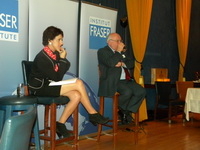 The recent debate on the merits of Canadian multiculturalism between secular firebrand Djemila Benhabib and Montreal civil rights lawyer Julius Grey began to get personal after Benhabib accused the Canadian government of moral and intellectual cowardice. Hosted by the Fraser Institute at Peel Street’s Café Ferreira, an erudite crowd full of assorted academics and civil servants were especially eager to hear what Benhabib had to say about the province’s ongoing multiculturalism debate. Even as she read off a prepared text, Benhabib continued to insist responsible governments (especially those in the west) must continue to stick to their secular guns.
The recent debate on the merits of Canadian multiculturalism between secular firebrand Djemila Benhabib and Montreal civil rights lawyer Julius Grey began to get personal after Benhabib accused the Canadian government of moral and intellectual cowardice. Hosted by the Fraser Institute at Peel Street’s Café Ferreira, an erudite crowd full of assorted academics and civil servants were especially eager to hear what Benhabib had to say about the province’s ongoing multiculturalism debate. Even as she read off a prepared text, Benhabib continued to insist responsible governments (especially those in the west) must continue to stick to their secular guns.
The kids will be alright!
Par Dan Delmar le 3 décembre 2009
There seems to be only one issue that unites politicians of all colours and creeds. It became painfully obvious how omnipresent this theme was as I had the painstaking task of interviewing dozens of candidates – some competent, some not – vying for city council seats leading up to last month’s election. In order to be considered as a credible politician, it appears as though one has to make the supposed plight of children a focal point in a campaign. More specifically, how to protect our little tykes from speeders, drug dealers, pedophiles and a myriad of dangers that lurk around every corner.
Why is the Dalai Lama so popular?
Par Stephen Schettini le 4 novembre 2009
When I wanted to meet the Dalai Lama back in 1980, I went to his door in Dharamsala and knocked. “Sure,” his servant said. “Tomorrow afternoon okay?” That, of course, was before he became an international superstar.
From Small Beginnings
Par David Solway le 1 octobre 2009
Global warmists, environmentalists and ecological redeemers are a mixed bunch and come in every shape, size and color. There are those, of course, who adopt a sane and responsible attitude toward preserving our natural heritage. One notable instance involves a new class of wealthy philanthropists, called eco-barons, such as the Chilean Sebastian Pinera, the American Douglas Thomas, and the Swiss Ernst Beyeler and Hansjörg Wyss, who have purchased, preserved and reconstructed millions of hectares in Chile, Argentina, the United States and South Africa. They are to be commended, not only because they are materially contributing to the planet’s well-being rather than whipping up public hysteria, but because they are not in the business of profiting from the latest environmental scare...
Wiesel in Montreal: “You are not alone! Somebody cares.”
Par Joel Goldenberg le 1 octobre 2009
Individuals should never think there is nothing they can do to help solve society’s ills, professor, Nobel Prize laureate and Holocaust survivor Elie Wiesel told an audience of more than 2,200 at Théâtre St. Denis recently...
























